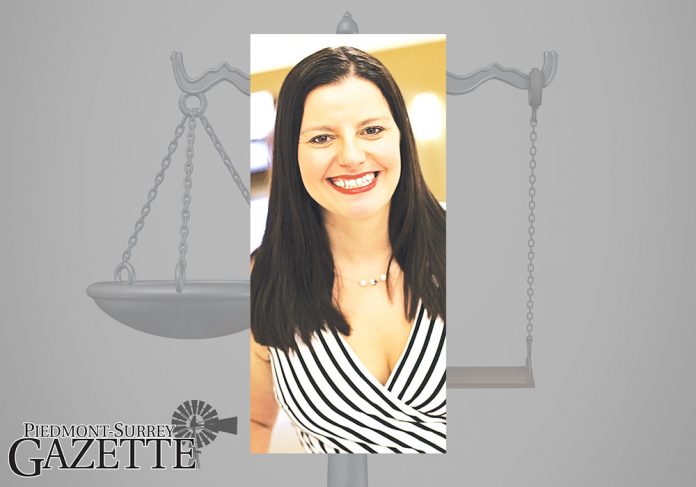By Rachel Bussett
I am spending the majority of my time this week at the federal courthouse downtown. I am trying my first federal criminal trial with allegations that my client embezzled from his governmental employer.
Federal court is a familiar venue for me but I’ve always remained on the civil side of things because federal criminal law is very different from state criminal law. I agreed to sit as counsel in this case because of the unique issues that related to employment law which is a significant part of my practice.
As I sat down to prepare for this case over the law few weeks, I spent a lot of time thinking about the differences in practice before the federal courts and state courts. Federal court is much more formal than state court. The judges are appointed by the president and approved by the Senate.
Federal district judge appointments are for life and the judges do not answer to a constituency the way that state court judges do. Further, federal court is typically viewed as being more favorable to civil defendants and the federal government.
In terms of how a trial is conducted, state court and federal court are fairly similar except for the jury selection process. The formal name for jury selection is “voir dire” and none of the Okies can pronounce it correctly. The phrase is French and it means “to see to speak”. The proper pronunciation is “vaw” like “haw” and “deer” but the Okies pronounce it with hard sounds as “Vor Die-r” When I meet other lawyers I can easily tell if they’re from Oklahoma or the SW area of the U.S. by the way they pronounce this phrase.
In state court, when the jury selection aka voir dire process starts, each side gets time to question the prospective jurors. The attorneys get an opportunity to reveal something about themselves and their clients while learning about the jurors. The voir dire process can often be very intrusive because lawyers are asking the jurors very invasive and personal questions about beliefs and bias.
Many attorneys believe it’s easier for the jurors to reveal this information when they are speaking directly to the jury and can engage in a conversation with the jurors. This appears to be a less adversarial process when it’s just two people talking about their beliefs and positions. In state court voir dire, the attorneys can stand up and talk to the jury about potentially anything that might help the lawyer select the jury and the strategy is often overlooked in its importance. But regardless voir dire is a huge bonding opportunity between the attorney and the jury.
However, in federal court the attorneys do not get to question the jury. Instead the entire questioning process is done by the judge. The attorneys submit proposed questions and the judge selects what to ask the men and women called for jury duty. The attorneys do not get to follow up and clarify answers to questions. They do not get to talk about their own personal bias or experience and have to trust that the judge will ask all that they want to know.
Then the federal court practitioner has to trust that the judge’s questions about bumper stickers, spousal employment, and relationships with law enforcement plus confessions to personal bias reveal enough information to decide if the individual is suitable to serving on the jury.
I personally do not like the federal jury selection process. Not because I don’t think that a judge can adequately question the jury or even make that connection but it doesn’t fit my personality. I like to take the time to get to know people. I like sharing something of myself with the potential jury. I think that helps me build creditability and trust with them.
You see during a trial we never really get to talk to the jury who is deciding the client’s fate, we talk at them. We put on facts and trot out charts, photos and theory but we never have an actual “tell me what you think” kind of conversation. I think that is vital to the lawyer and the client in selecting who will judge the client and the lawyers work.
You can guarantee that as my trial goes forward this week I will be wondering if my inability to talk to the jury at the beginning influenced the outcome of the trial. I will also be wondering if I would have selected different jurors if I had been allowed to question the prospective jurors myself as opposed to let the judge ask the questions.
Answers often change based on who the audience is and I think the proper voir dire audience would speak out much differently that one on who just tells the lawyer what they want to hear.
Beliefs and experiences matter when sitting in judgment of another. Going forward now all I can do is hope I submitted the right questions to the judge for him to ask, that the jurors answered truthfully and honestly and that my client gets the best possible defense in court.
Rachel Bussett is an Oklahoma City attorney. She can be reached at 405-605-8073.




